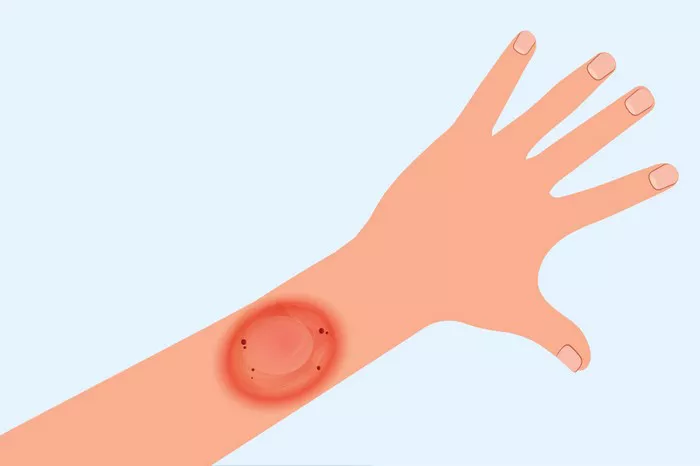Ringworm, also known as tinea corporis, is a common skin infection caused by a fungus called Trichophyton. It often appears as a circular, red, itchy rash on the skin, and can spread to other areas of the body or to other people through direct contact or contaminated objects. While ringworm is not typically a serious condition, it can be uncomfortable and may require treatment to clear up.
Understanding Ringworm and its Treatment
Before delving into the specifics of tablet treatments, it’s essential to understand what ringworm is and how it’s typically treated. Ringworm, also known as dermatophytosis, is a contagious fungal infection that can affect the skin, scalp, and nails. It’s characterized by red, itchy, and sometimes circular rashes that may resemble a ring, hence the name.
Treatment for ringworm usually involves topical antifungal medications, such as creams, lotions, or shampoos, which are applied directly to the affected area. These medications work by killing the fungus or preventing its growth, thus eliminating the infection. However, in cases where the infection is severe or widespread, oral antifungal medications in tablet form may be necessary to effectively eradicate the fungus from the body.
Factors to Consider When Choosing a Tablet for Ringworm Treatment
When selecting a tablet for ringworm treatment, several factors should be taken into consideration to ensure optimal outcomes and minimal side effects. Here are some key factors to keep in mind:
1. Type of Fungus:
Different types of fungi can cause ringworm, including Trichophyton, Microsporum, and Epidermophyton species. The choice of tablet medication may depend on the specific type of fungus causing the infection, as certain antifungal agents may be more effective against particular species.
2. Severity of Infection:
The severity and extent of the ringworm infection will influence the choice of treatment. For mild cases limited to a small area of the skin, topical creams or lotions may suffice, while more severe or widespread infections may require oral antifungal tablets for systemic treatment.
3. Patient’s Age and Health Status:
The age and overall health of the patient should also be considered when selecting a tablet for ringworm treatment. Some oral antifungal medications may not be suitable for use in children or individuals with certain medical conditions, so it’s essential to consult a healthcare professional for personalized recommendations.
4. Potential Side Effects:
Like any medication, oral antifungal tablets can cause side effects, ranging from mild to severe. Common side effects may include nausea, vomiting, diarrhea, and headache. Before starting treatment, patients should be aware of the potential side effects and discuss any concerns with their healthcare provider.
5. Drug Interactions:
Oral antifungal medications may interact with other drugs, potentially affecting their efficacy or increasing the risk of side effects. It’s crucial to inform the healthcare provider about any other medications or supplements being taken to avoid potential drug interactions.
Top Tablets for Ringworm Treatment
Several oral antifungal medications are commonly used for the treatment of ringworm. Here are some of the top tablets available:
1. Terbinafine (Lamisil):
Terbinafine is a potent antifungal medication that is highly effective against dermatophyte fungi, the most common cause of ringworm. It works by inhibiting the synthesis of ergosterol, a key component of fungal cell membranes, leading to the death of the fungus. Terbinafine is available in tablet form for oral administration and is typically taken once daily for a specified duration, as determined by the healthcare provider.
2. Itraconazole (Sporanox):
Itraconazole is another oral antifungal medication commonly used for the treatment of ringworm. It belongs to the class of triazole antifungals and works by inhibiting the synthesis of ergosterol, similar to terbinafine. Itraconazole is available in capsule form for oral administration and is usually taken once or twice daily for a specified duration, depending on the severity of the infection.
3. Fluconazole (Diflucan):
Fluconazole is a broad-spectrum antifungal medication that is effective against a variety of fungal infections, including ringworm. It works by inhibiting the synthesis of ergosterol, disrupting fungal cell membranes and leading to cell death. Fluconazole is available in tablet form for oral administration and is typically taken once daily for a specified duration, depending on the severity of the infection and the patient’s response to treatment.
4. Griseofulvin:
Griseofulvin is an oral antifungal medication that has been used for many years in the treatment of ringworm and other fungal infections. It works by inhibiting fungal cell division, preventing the spread and growth of the fungus. Griseofulvin is available in tablet form for oral administration and is usually taken once or twice daily for several weeks, depending on the severity of the infection and the site of involvement.
Conclusion
Choosing the best tablet for ringworm treatment requires careful consideration of several factors, including the type of fungus causing the infection, the severity of the infection, the patient’s age and health status, potential side effects, and drug interactions. Terbinafine, itraconazole, fluconazole, and griseofulvin are among the most commonly used oral antifungal medications for the treatment of ringworm, each with its unique characteristics and considerations.
Before starting any oral antifungal treatment, it’s essential to consult a healthcare professional for a proper diagnosis and personalized treatment plan. By following their guidance and selecting the most appropriate tablet medication, patients can effectively manage and eradicate ringworm infections, restoring skin health and preventing further spread of the fungus.























